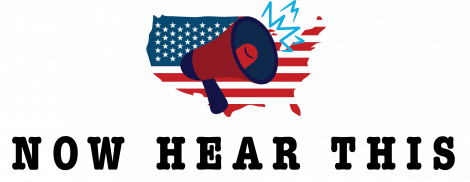Publisher's Corner

Guest Viewpoint
Well, that felt good.
Veteran Wealth Tactics: Achieving Long-Term Financial Stability

Veterans embarking on civilian life face unique financial challenges that require smart strategies for stability. Achieving financial independence involves more than just making ends meet; it's about establishing a robust system that thrives on discipline and foresight. This guide from End Veteran Debt offers proven techniques to help veterans build a secure and prosperous financial future.
Create a Detailed Budget That Works for You
Craft a precise budget to lay the groundwork for financial security. Begin by tallying all income sources, such as salaries, pensions, and veteran benefits, then list and categorize all expenditures, including essential and discretionary spending. Set tangible savings objectives like building an emergency fund or planning for retirement, and integrate these into your monthly financial plan. This meticulous approach to budgeting provides transparency into your financial habits and helps you make necessary adjustments to achieve financial autonomy.
Reassess Financial Goals Regularly to Stay Aligned with Life Changes
Adapt your financial goals to reflect life’s evolving circumstances, such as career changes, relocations, or family dynamics. Periodically, every few months, review and realign your financial targets to ensure they fit your current lifestyle and aspirations. Tweaking your budget and savings strategy in response to these changes ensures that your financial planning remains relevant and focused. Staying proactive with these adjustments keeps you aligned with your long-term financial health.
Be Aware of Financial Scams and Protect Yourself
Veterans must stay alert to protect against financial scams, which often mimic legitimate entities like government or veteran organizations. It's crucial to question offers that push for quick decisions or seem unusually generous. Using a reverse phone lookup service can help avoid phone scams by allowing users to verify the name, address, and phone carrier for any number, along with accessing phone complaint data on heavily reported numbers. For info on the 347 area code or to validate other suspicious numbers, such services are invaluable.
Spend Less Than You Earn for Long-Term Success
Maintain financial stability by spending less than what you earn. Establish a straightforward rule to live by: keep your expenses below your income to avoid financial strain. Prioritize your spending on essentials and scale back on non-essentials to ensure you're always saving more than you're spending. This discipline not only helps in building a substantial savings pool but also prevents the stress associated with overextended finances.
Automate Savings for a Consistent Financial Future
Secure your financial future by setting up automatic transfers to your savings or investment accounts. Choose a regular schedule for these transfers to ensure a consistent portion of your income is saved without having to think about it each time. This automation supports sustained saving habits and gradually builds up a significant reserve that can cover emergencies or fund major goals like buying a home or retirement planning. It's a hassle-free way to prioritize your financial growth and stability.
Exercise Caution with Credit Cards and Loans
Handle credit cards and loans with care to avoid falling into debt traps. Limit your credit card usage to what you can fully pay off at the end of each month, and avoid taking out high-interest loans unless absolutely necessary. Prioritize repaying existing debts to improve your credit score and reduce interest costs. Wise use of credit enhances your financial well-being by avoiding unnecessary debt and supporting your overall financial goals.
Practice Mindful Spending with a Cooling-Off Period
Employ mindful spending strategies to prevent impulsive buying. For significant expenditures, implement a 24-hour cooling-off period to contemplate the necessity and impact of the purchase. This reflection period helps you evaluate if the expense aligns with your financial priorities and often curbs the impulse to spend. Adopting this practice can significantly improve your financial decision-making and keep your budget intact.
Securing one's financial future is an ongoing process that demands vigilance and adaptability, especially for veterans. The strategies outlined here are designed to empower veterans to take control of their finances with confidence. As veterans implement these methods, they lay a strong foundation for financial health that supports both immediate needs and long-term aspirations. It’s about creating a financial environment where stability is not just hoped for, but expected.




